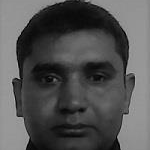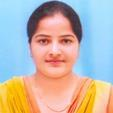International Journal of Education and Management Engineering (IJEME)
IJEME Vol. 7, No. 5, 8 Sep. 2017
Cover page and Table of Contents: PDF (size: 733KB)
Realization of Flip Flops using LabVIEW and MATLAB
Full Text (PDF, 733KB), PP.7-22
Views: 0 Downloads: 0
Author(s)
Index Terms
Flip-flop, Clock, LabVIEW, Boolean function, Simulation, Sequential circuits, Memory elements, Digital electronics, MATLAB, Simulink
Abstract
Digital electronics is the backbone of current technology, play a pivotal role in the growth of humanity. Digital memory is part of digital electronics consists flip-flops building blocks designed by using logical NAND and NOR gates. Validation of storing information in form of bits can be understood from analysis of working of flip-flops. In the present investigation, VI Model of the different flip flops in LabVIEW has been realized and simulation implementation of flip flops is utilized to analyze the functioning of memory elements. The characteristics table of all kind of flip flop is verified using VI Models. Moreover, different flip-flops are also realized in MATLAB using Simulink. In the phase of digital and internet, this student -centric learning of existing theory of flip-flops can easily understand using simulation environment.
Cite This Paper
Mittarpal, Naresh Kumar, Priyanka Anand, Sunita,"Realization of Flip Flops using LabVIEW and MATLAB", International Journal of Education and Management Engineering(IJEME), Vol.7, No.5, pp.7-22, 2017. DOI: 10.5815/ijeme.2017.05.02
Reference
[1]Blackslee, Thomas R., Digital Design with Standard LSI and MSI, John Wiley, New York, 1979.
[2]John F. Wakerley, Digital Design Principles and practices, Pearson, 3rd edition, 2001.
[3]Simulation: An Enabling Technology in software Engineering Alan M. Christe.
[4]Studying the Role of Simulation in Developing Students’ Statistical Reasoning, Andrew Zieffer, and Joan B. Garfield.
[5]National Instruments, Labview, http://www.ni.com/labview/.
[6]Elbert Pual Malvinoand Donal Leach, Digital Principles and Applications, 4th Edition, Tata McGraw Hill Publishing Company Ltd., New Delhi, India, 1991.
[7]Digital Integrated Electronics, Herbert Taub, Donald Schiling, Tata McGraw hill, 6th reprint, 2010.
[8]Morris Mano, Digital Logic and computer Design, PHI Learning Private Limited New Delhi, 1979.
[9]Teyana, Interactive Web based Laboratories in Digital Electronics, International Conference on Education and e-learning Innovation, vol.1, pp 1-5, 2012.
[10]R.P.Jain, Digital Electronic, Tata McGraw hill Education, 4rd edition, (2010).
[11]Blackslee, Thomas R., Digital Design with Standard LSI and MSI, John Wiley, New York, 1979.
[12]J.A. Fran Cisco, A.D. Castro, and B. Christian, Course on Digital Electronics Oriented Describing System in VHDL, IEEE Transactions on Industrial Electronics, Vol. 50, pp 3308-3316, 2010.
[13]Yap Wing Fen, Luq Man Al Hakim Mohamad Sabri, Integration of LabVIEW for Novel Interactive Learning Courseware on Digital Electronics, IJIER, Vol.2 , Issue 11, pp 156-163, 2014.
[14] Professor Barry Paton, “Fundamentals of Digital Electronics” using LABVIEW, March 1998 edition, Part Number 321948A-01.



